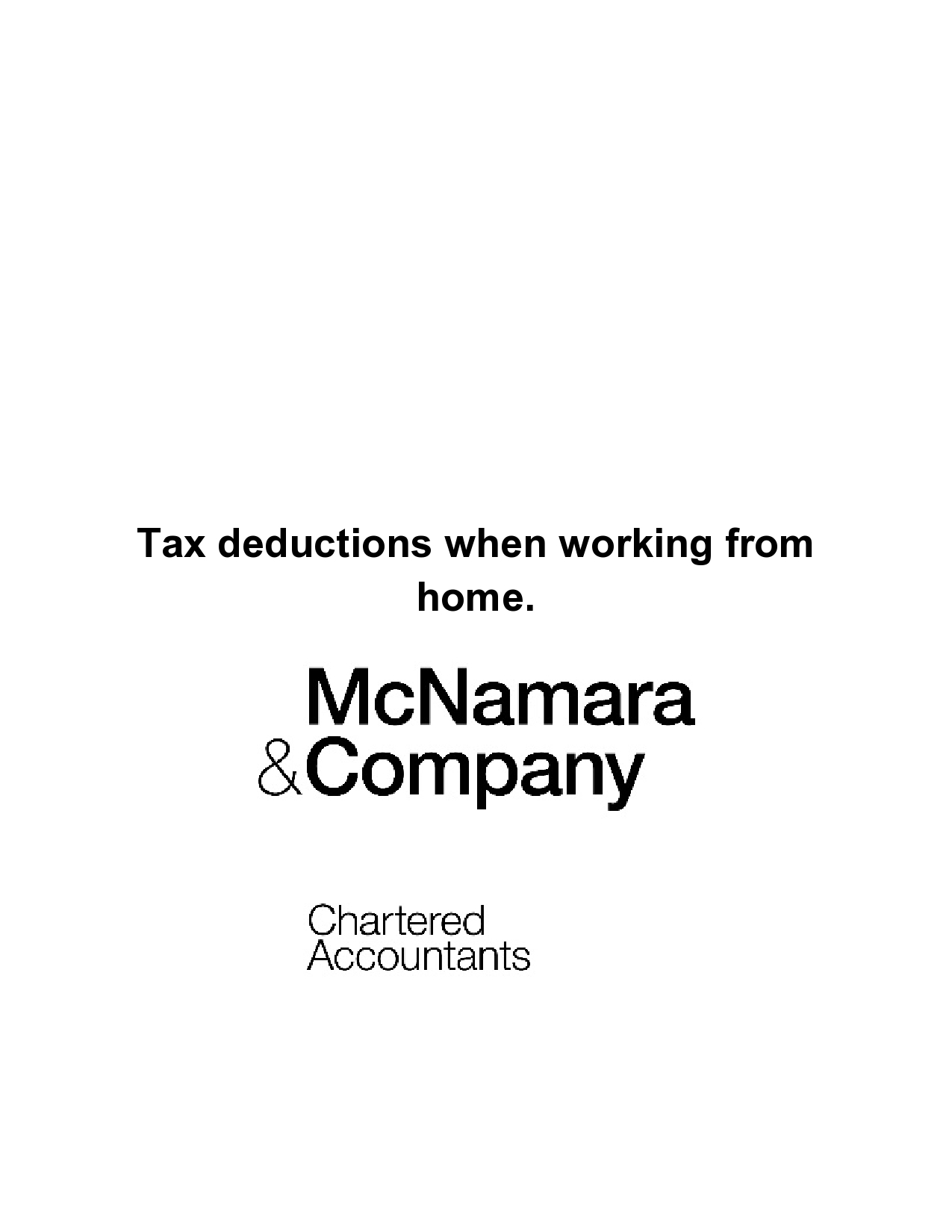Blog & Resources
Tax deductions when working from home.

As a result of the Corona Virus many people are working from home. In some instances, they have no choice.
Working from home may allow you to deduct part of your home expenses / payments.
The deductions available will depend on whether the home can be regarded as a place of business or if you just find it convenient to do part of your work at home.
Home as a place of business
More deductions can be claimed where your home is a “place of business”.
This means you are operating your business from home. If you are an employee you do far more than just bring work home for personal convenience.
The following are examples of using the home as a place of business:
• Doctor or dentist who has a surgery.
• Trades person who has a workshop at home.
• Sole trading scriptwriter who conducted writing activities from a room in their flat.
• Sales person who was required by her employer to maintain an office at home.
• An employee architect who conducted a small private practice from home.
Factors to be considered whether a business is being operation from home:
• Is the area is clearly identifiable as a place of business.
• Is the area is not readily suitable or adaptable for use for private or domestic purposes in association with the home generally.
• Is the area used exclusively or almost exclusively for business purposes.
• Is the area used regularly for visits by clients / customers.
Where the home is used a place of business, the following deductions can be claimed:
1. Interest (on home loan);
2. Rent;
3. House insurance;
4. Council rates;
5. Water rates;
6. Land taxes;
7. Cleaning costs, pest control;
These deductions are generally calculated on a floor area basis as follows: Floor area of office (divided by) total floor area (multiply by) relevant expenditure. Capital Gains Tax (CGT) may apply.
8. Heating;
9. Lighting;
Additional expenditure incurred in providing heat and light exclusively while engaged in income-producing activities. These claims are generally small and reasonable estimates would normally be accepted.
10. Depreciation;
11. Insurance;
12. Repairs on relevant equipment;
13. Desks;
14. Chairs;
15. Bookshelves;
16. Curtains;
17. Floor coverings;
18. Fluorescent lighting systems, etc;
19. Maintenance;
20. Decorating (e.g. painting or wallpapering);
21. Repairs to part of the home that is a place of business;
Apportion for private use.
22. Telephone.
This is the most difficult to apportion when adhering to the ATO legislation. Please contact our office for further information.
What expenses can I claim if I have a home office?
More difficult problems arise if you simply maintain an office or study in your home for income-producing work because it is not convenient to carry out at your normal place of work.
Although the area in question is used for income-producing activities, it will not normally qualify as a “place of business”.
Deductions that may be available include:
1. Heating Expenses;
2. Cooling Expenses;
3. Lighting Expenses
4. Depreciation for:
- Professional library;
- Furniture and equipment.
Please note:
Deductions only apply to costs that are additional to those that would have been incurred in any event. For example, if you work in a room where there are other family members no additional cost would be incurred therefore a deduction would not be appropriate.
The ATO will accept a diary covering a four-week representative period as establishing an individual’s pattern of use for the whole year. A new diary must be kept for each financial year. If there is no regular pattern, detailed records may need to be kept.
The ATO will accept a claim based on 52 cents an hour to cover the following:
1. Heating expenses;
2. Cooling expenses;
3. Lighting expenses;
4. Depreciation on furniture.
A separate calculation must be made for depreciation on the following equipment:
5. Computer;
6. Printer;
7. Copier.
This should be based on a bona fide estimate of the percentage of work or business use, which may be based on the four-week representative diary.
8. Telephone
This is the most difficult to apportion when adhering to the ATO legislation. Please contact our office for further information.
If you would like to discuss further please contact us:
McNamara and Co - Chartered Accountants, located minutes from the Melbourne CBD
www.mcnamaraandcompany.com.au/contact-us
Phone +61 3 9428 1062
Email admin@mcnamaraandco.com
Please refer to disclaimer at the bottom of the page.